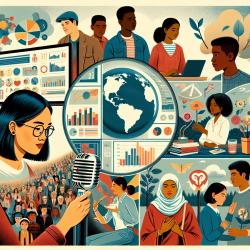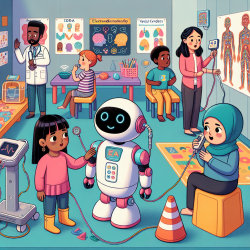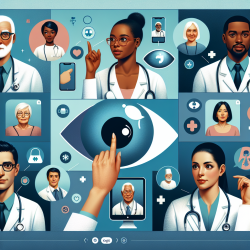Introduction
In the realm of speech-language pathology, creating optimal outcomes for children involves not only understanding the intricacies of communication disorders but also recognizing the broader socio-environmental factors that influence child development. A recent commentary titled Integrating Youth Perspectives: Adopting a Human Rights and Public Health Approach to Climate Action offers valuable insights into how practitioners can enhance their skills by integrating youth perspectives and adopting a holistic approach to climate action.
The Role of Youth Perspectives
Youth engagement in climate action is not just about environmental advocacy; it is about recognizing the interconnectedness of climate change, human rights, and public health. The commentary emphasizes the importance of youth-led interventions in addressing the violations of human rights and public health challenges posed by the climate crisis. For speech-language pathologists, this means acknowledging the broader context in which children live and the environmental factors that may impact their communication abilities.
Implementing Data-Driven Approaches
Data-driven decision-making is crucial in speech-language pathology. The commentary highlights the need for holistic data collection to inform evidence-based policies. Practitioners can leverage this approach by collecting comprehensive data on the environmental and social factors affecting their clients. This data can then be used to tailor interventions that not only address speech and language needs but also consider the broader environmental influences on a child's development.
Encouraging Further Research
The intersection of climate change, human rights, and public health is a relatively nascent field. Speech-language pathologists are encouraged to engage in further research to explore how these factors intersect with communication disorders. By collaborating with public health experts and climate scientists, practitioners can contribute to a growing body of knowledge that seeks to understand the full impact of environmental factors on child development.
Conclusion
By integrating youth perspectives and adopting a data-driven approach to understanding the environmental influences on child development, speech-language pathologists can enhance their practice and create better outcomes for children. Embracing a holistic view of child development that considers climate action, human rights, and public health can lead to more effective interventions and a deeper understanding of the challenges faced by children today.
To read the original research paper, please follow this link: Integrating Youth Perspectives: Adopting a Human Rights and Public Health Approach to Climate Action.










